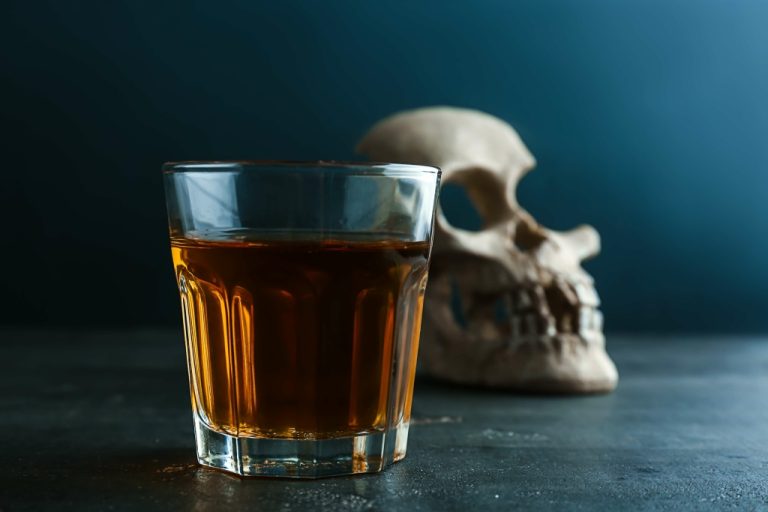Why You Get Stuffy Nose After Drinking Alcohol and How to Stop It
However, studies have found that a large percentage of red and white wines exceed these recommendations. Most wines don’t state their histamine content on the label, which can make marijuana addiction it difficult to know what you’re choosing. If you find that certain foods make you sneeze, such as strawberries or shellfish, try avoiding them before you drink.
Does drinking alcohol increase histamine levels?
Alcohol intolerance is a genetic condition where an individual’s immune system overreacts to alcohol. Alcoholic drinks containing histamine, such as beers, ciders, or brown liquors, can also trigger symptoms that may be confused with an allergy. A sudden onset of sneezes following a glass of vino or a beer may mean you are histamine intolerant. Stuffy nose problem is also termed as sinus congestion which often occurs due to presence of preservatives like sulfur dioxide.
Q 10: Can alcohol cause skin reactions?

It’s important to note that a Red Wine Allergy is not the same as an intolerance to red wine. An allergy occurs when something in the wine triggers an immune reaction, while an intolerance takes place when someone has difficulty digesting certain components of the beverage. As such, a person who is allergic to red wine should avoid it altogether and seek medical advice if symptoms persist. Red wine typically contains higher levels of histamine compared to other wines, and certain varieties, like Shiraz, have even more. This histamine can provoke sneezing and other allergy-like symptoms, including headaches and stomach upset. For those sensitive to histamine, consuming alcohol can exacerbate symptoms significantly.
Alcohol allergies
Another common symptom you may experience is a stuffy nose or nasal congestion. If you have ever experienced nasal congestion, a runny nose, or sneezing after consuming alcohol, you are not alone. It is https://dev-freelancerjustin95.pantheonsite.io/25-ways-to-make-your-home-sustainable/ not uncommon for individuals to exhibit symptoms of congestion shortly after drinking alcoholic beverages. This phenomenon is known as alcohol-induced rhinitis or alcohol-induced vasodilation, and it can occur even in individuals who do not typically have allergies or sinus problems.
FAQs About Alcohol-Induced Sneezing
- This reaction will happen whatever alcohol you consume, whether it is drunk or added to main courses or puddings.
- Some individuals may have a genetic predisposition that makes them more prone to sneezing after consuming alcohol.
- Alcohol intolerance is a genetic condition where an individual’s immune system overreacts to alcohol.
- According to the UK Food Standards Agency, nearly all wines exceed 10mg/L of sulphur dioxide.
Red wines, for example, tend to have higher levels of histamines than white wine or beer. If you find that drinking these beverages triggers an allergic reaction, then it’s important to limit your intake and switch to lower-histamine alternatives. Another helpful tip is to opt for histamine-low foods, such as fresh fruits and vegetables, or fermented products like yogurt or kefir. These foods can help your body break down the histamines more effectively, reducing the potential for an allergic reaction. Alcohol by-products can cause minor allergic reactions when not broken down quickly, leading to sneezing and other allergy-like symptoms. The most likely explanation is that alcohol dilates blood vessels in the nose, which can cause irritation and lead to sneezing.
However, if an individual is sensitive to temperature changes in their nasal passages, it may contribute to sneezing. Grapes, wheat, hops, and gluten may be present in the alcoholic beverage, which is causing the problems, instead of the reasons mentioned above. Wine contains tannins (which are found in the skin of grapes) which many people react negatively to, including experiencing diarrhea. We may never know for sure but that doesn’t mean we can’t enjoy a glass of vino every now and then. If you suffer from this perplexing phenomenon, just remember that you’re not alone – and there are worse things in life! Besides, maybe your sneezes are just nature’s way of making sure you don’t have too much fun ;).
- It is important to consult with your doctor for an accurate diagnosis and appropriate treatment.
- Just like wine, beer has a lot of ingredients that can make someone react negatively.
- The temperature of the alcohol itself is not a significant factor in inducing sneezing.
New Study Finds That 1 Percent Of The Population Is Sensitive To Sulfites In Wine

For example, Italian winemaker Peri Bigogno produces wines with a certified histamine content under 0.5 mg/L. In some cases, reactions can be triggered by a true allergy to a grain such as corn, wheat or rye or to another substance in alcoholic beverages. Alcohol intolerance is caused by a genetic condition in which the body can’t break down alcohol efficiently. If you’re looking for a way to prevent sneezing when you drink, try making your cocktails with fresh why do i sneeze after drinking alcohol fruit juices instead of using pre-made mixes. This will help reduce the number of histamines in your drink and make it less likely to trigger a sneeze.
Additionally, if you have a family history of alcohol intolerance or have experienced uncomfortable symptoms after consuming alcohol before, it may be wise to avoid drinking altogether. Alcohol, especially red wine and beer, contains histamines and can trigger the release of more histamines in your body. This can exacerbate allergic reactions, making symptoms like congestion, sneezing, and itching more pronounced. The symptoms range from sneezing and congestion to a more severe anaphylactic reaction. Histamine, which is produced during the breakdown of alcohol, is one of the main compounds responsible for these allergic reactions.
Alcohol Allergy vs. Alcohol Intolerance
Alcohol consumption can lead to sneezing and nasal congestion due to several physiological factors. Firstly, the byproducts of alcohol that aren’t broken down quickly can accumulate, resulting in mild allergic reactions. Secondly, alcoholic beverages, particularly wine, beer, and spirits, contain histamine, a compound known to elicit allergic responses. When alcohol is consumed, it enters the bloodstream and affects blood vessels, causing them to dilate. This dilation can irritate the nasal lining and lead to increased mucus production, contributing to nasal congestion and sneezing as the body attempts to eliminate irritants.
Ingredients and Allergens in Beer
While alcohol-induced sneezing is generally harmless, taking note of any severe or persistent symptoms is essential. Ultimately, each person’s reaction to alcohol can vary, so understanding your body’s unique response is key. This condition can also make pre-existing asthma worse, so it’s important to keep an eye on your symptoms.
